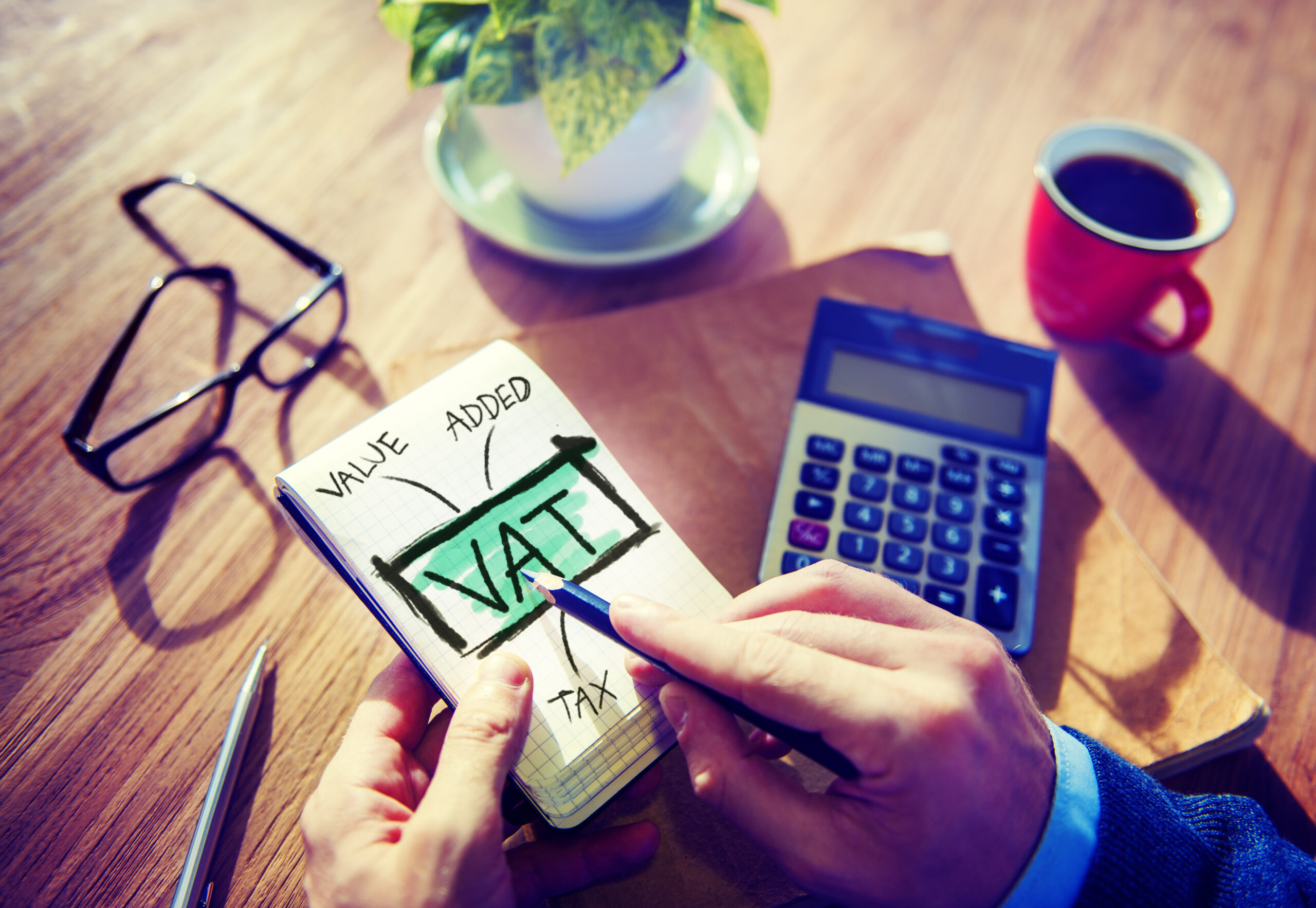
VAT Return Services
Submitting your VAT return doesn’t need to be stressful
It’s one of those must-do incredibly tedious tasks that always gets left to the last minute. There is always something more important to do, right?
Wouldn’t it be great to sit back, chill and be confident that your VAT tax return is being taken care of?
Our expert team of qualified accountants can help.
Never again will you need to fill in another HMRC form.

Stress Free VAT Return Services
Here at Mazuma we understand the stresses involved in running a small business. Our monthly accounting services subscription can take one of those stresses off of your hands. We help start-ups, sole traders, small businesses, freelancers and Limited companies with their monthly accounts.
Our VAT returns service is just one of the many features that make up our monthly accounting services subscription.
One monthly cost, no hidden extras, exceptional customer support delivered by an expert team of qualified accountants
We will do your VAT returns as well as
- Monthly management accounts
- Bookkeeping
- Monthly payroll
- Statutory end of year accounts
- Corporation or partnership tax return
- Self assessment tax return
Prices start from £38/month + VAT
Which VAT scheme should you use?
Most businesses know that once the tax turnover for a business exceeds the VAT registration threshold (currently £85,000 a year), or it is expected to do so within the next 30 days, VAT registration is compulsory. Some businesses are not required to register (e.g. those offering education and training and some medical treatments) but if registration is required there are several schemes to choose from – which you choose will depend on the type of business and how the business is run.
The different schemes
Apart from the standard accounting method, there are the Cash accounting, Annual accounting, and Flat rate schemes. In addition, various VAT margin schemes exist whereby instead of paying VAT based on an item’s selling price, the tax is based on the difference between the amount paid for an item and the selling price.
Standard VAT Accounting
Under standard VAT accounting, when to assess for VAT is based on the dates on the invoice and receipts, rather than payment dates.
Deregistration is possible if taxable supplies in the next 12 months are estimated to be £83,000 or less unless the business ceases or supplies are suspended for more than 30 days. A business can remain voluntarily registered so long as a taxable trade continues. Notification of deregistration is required within 30 days of ceasing to make taxable supplies, effective from the date of notification or later as agreed with HMRC.
Importantly, many owners of deregistered businesses are unaware that they must account for output tax on any assets the business has at deregistration, where the VAT due on the value exceeds £1,000; this means that an asset of £5,000 or more triggers a ‘deemed supply’. The most likely trigger is the ownership of a building but can also include ownership of commercial vehicles, equipment, and stock on hand. VAT due on deregistration is a deemed supply of the VAT registered business ‘selling’ the assets to the continuing non-VAT registered entity. A claim for VAT incurred after deregistration relating to supplies made before, can be made as can bad debt relief.
Cash accounting scheme
Under standard VAT accounting cash-flow problems can occur should customers take time to pay which is where the Cash Accounting Scheme can prove beneficial. Under this scheme VAT is not included on a return until the customer has paid or the supplier has been paid. A business must leave the scheme at the end of any VAT period where the taxable sales for the previous twelve months have exceeded £1.35 million excluding VAT. Such a business will revert to using the standard accounting method unless full deregistration is made. The final return on leaving the scheme must account for output tax on closing debtors, claiming input tax on any closing creditors – that way the system aligns with the standard method of accounting. Where the change could produce a potential cash-flow problem, VAT on debtors and creditors can be paid over the next two quarters (6 months), as and when payments are made and received. HMRC is not required to be notified when the business leaves the scheme but any outstanding VAT must be paid.
Some businesses may temporarily exceed the threshold and if this happens they can remain within the scheme if it is believed that taxable sales in the next twelve months will be less than the joining threshold, i.e. £1.35 million excluding VAT – again, HMRC is not required to be notified.
Annual Accounting scheme
Under this scheme VAT payments on account are made throughout the accounting year, based on the net liability on the previous year’s return. The annual return and balancing payment are due within two months of the end of the accounting year. Designed to be flexible and simple, it can also be combined with the flat rate and VAT cash accounting schemes if desired. The exit requirements for this scheme are the same as for the cash accounting scheme.
Flat rate scheme
This scheme is only available to businesses with a turnover of £150,000 or less, which will rule out many VAT-registered businesses. Under the scheme the business charges the customer the standard VAT rate but pays a fixed percentage of the gross sales in a period, depending on the business activity, ranging from 4% for food retailers to 16.5% for limited costs businesses. This scheme is most beneficial for those businesses that do not have many VATable expenses to claim.
A business can opt to leave the scheme at any time but must leave if gross sales including VAT have exceeded £230,000 on the anniversary date of joining the scheme or there are reasonable grounds to believe that income for the next 30 days will exceed that amount (capital asset sales excluded). However, if total sales including VAT are expected to be less than £191,500 in the next twelve months, application can be made to remain in the scheme.
Never worry about your VAT Return again
VAT Return Service
Do I need to submit a VAT return?
If you are a VAT registered business you need to submit a VAT return to HMRC either monthly, quarterly or annually.
How is my VAT return worked out?
VAT charged on your sales – VAT you can reclaim on business expenses = your VAT return
A completed VAT return will either show how much is owed to HMRC, or whether you are due a VAT refund. There are also some goods and services that are exempt from VAT, just to make it that little bit more confusing.
How do I submit my VAT Return?
If you have the time and the knowledge you can do it yourself or you can use Mazuma’s VAT return service, we will do it on your behalf.
Leaving your VAT to us means you can feel reassured it’s done both quickly and correctly – so you have more time to focus on your business.
- We carefully process your bookkeeping and check that everything is in order
- We ensure all the VAT your business has charged is claimed for
- We’ll then send you the accurate figures which you can submit to HMRC
We also keep you updated on those dreaded deadlines, so you don’t have to worry about being caught out.
What are the consequences of getting my VAT return wrong?
As a business owner, we know you’re super busy. You’re juggling a million and one things, and the last thing you want is to worry about incorrectly submitting your VAT return…
If the worst happened and you did make a mistake when submitting your VAT return, or if you miss the deadline, HMRC can ‘default’ your company on its VAT liabilities. While you’re in the ‘default’ stage, you could face various surcharges or penalties:
Surcharges
You may be required to pay a surcharge if HMRC don’t receive your VAT return by the deadline; or if full payment for the VAT hasn’t reached their account by the deadline.
Penalties
HMRC can also issue you with a penalty for failing to submit your tax return by the deadline or by failing to disclose the required information. These can be:
- 100% of any tax that is inaccurately recorded
- 30% of an VAT return assessment – this is a sneaky one! If HMRC sends you a VAT return assessment that’s too low but you don’t tell them it’s wrong within 30 days, you’ll be the one who gets the penalty
- £400 for submitting a paper VAT Return – unless HMRC has told you that you’re exempt from submitting your return online, then you’re in the clear
Sounds scary, right? We know! There’s a lot to be aware of when it comes to penalties and surcharges. Luckily for you, that’s where we can help.



